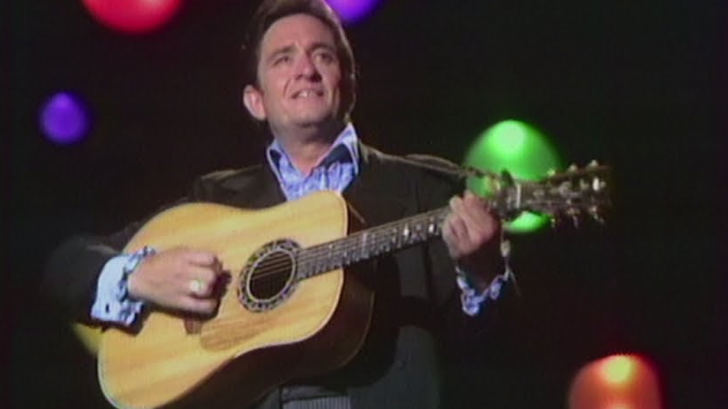Of course, every song purports to have a narrative. We infer information from the lyrics, which helps us visualize the message the musician is attempting to convey in our minds. Occasionally, though, a performer may utilize their allotted three minutes to tell a sequence of events in their own life or the lives of a character in a markedly chronological manner.
“A Boy Named Sue” – Johnny Cash
Through his San Quentin recordings, Johnny Cash popularized “A Boy Named Sue,” which was written by renowned author Shel Silverstein. Now, I don’t blame him ’cause he run and hid / But the meanest thing that he ever did / Was before he left, he went and named me “Sue,” Cash pulls out towards the start of the song, setting up a tale of hardship and retaliation. It was one of Cash’s biggest hits when it was first released. Who would have imagined that a song by a children’s book that was performed in a jail would become so popular?
“Don’t Mess Around With Jim” – Jim Croce
Jim Croce offers a vengeance scenario in a similar spirit, this time with a mob leader and a young Alabama kid who first appears to be innocent. Following the theft of his money, Big Jim finds himself on the receiving end of Willie McCoy’s knife. As Croce sings the chorus, “Slim” quickly ascends to the position of leadership in the community. You don’t tug on Superman’s cape / You don’t spit into the wind / You don’t pull the mask off that old Lone Ranger / And you don’t mess around with Slim.
“Red Dirt Girl” – Emmylou Harris
With her song “Red Dirt Girl,” Emmylou Harris sets off the tears. Drawing from her memories of her childhood in Alabama, she tells the tale of a friend named Lillian who never left their “red dirt town.” Toward the end of the song, she sings, “Could-a been the whiskey, could-a been the pills / Could-a been the dream she was tryin’ to kill. Lillian never got much further than Meridian, where she sunk her hammer six feet into the earth of red soil. It’s a tragic yet incredibly poignant snapshot of small-town life.
“Travelin’ Soldier” – The Chicks
In 2003, as the United States was about to go to war with Iraq, The Chicks helped “Travelin’ Soldier,” a song written by Bruce Robinson in the 1990s, reach No. 1. The moving song explores the idea of young people dying from conflict. A young man is getting dressed in his Army greens when he runs into a timid diner employee. While apart, the two correspond via letters, growing more and more in love with each one that is written. Eventually, the “small girl with a bow in her hair” is devastated to learn that her soldier is among the local Vietnam dead. Few songs have such a strong emotional impact as this one.
“Escape (The Piña Colada Song)” – Rupert Holmes
We’re now looking at “Escape (The Pia Colada Song)” by Rupert Holmes for some lighter food. It’s difficult to find someone who doesn’t at least recognize the tune of this song because it’s a legend in the narrative genre. Our narrator decides to place an advertisement for a new partner in the newspaper because his relationship is in trouble. Unbeknownst to him, his wife has followed suit, and via the most unexpected of circumstances, the two fall in love once more.
“The Wreck of the Edmund Fitzgerald” – Gordon Lightfoot
Gordon Lightfoot dedicated his song “The Wreck of the Edmund Fitzgerald” to the 29 people who perished when Edmund Fitzgerald sank in Lake Superior. He creates a tragic atmosphere by singing, Then the Edmund Fitzgerald weighed empty / That good ship and true was a bone to be chewed / When the gales of November came early.
“Uneasy Rider” – The Charlie Daniels Band
In “Uneasy Rider,” Charlie Daniels drives across the nation but barely avoids a brawl. The narrator, who calls himself a hippy, runs into some obnoxious people in a Jackson, Mississippi, pub. He needs to act quickly to hide his counter-culture ties after the locals see his free-flowing hair and his automobile bearing a peace sign bumper sticker. He masterfully shifts the blame and rapidly turns the tables on his accusers. Daniels had a talent few artists have for using music to communicate stories.

